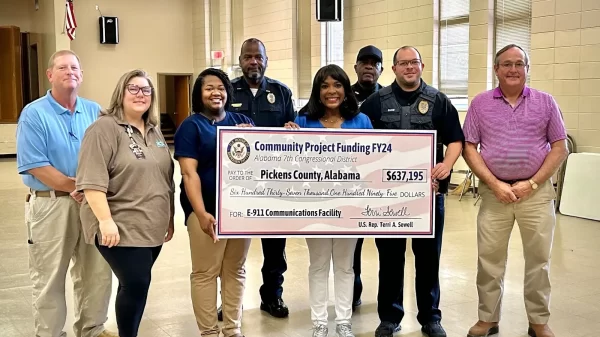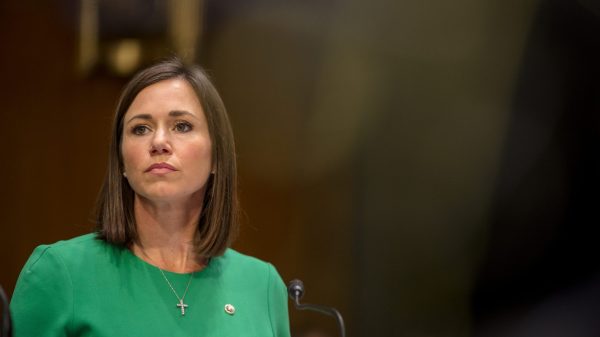The roads were wet that September 1987 night in Onondaga County, New York.
When the call came in — that there was a fire at the Parklane Apartments and people were trapped inside — 20-year-old Chris Bilger, a firefighter with the North Syracuse Fire Department, got in his two-door Chrysler Cordoba to drive to the station.
He made it as far as Church Street, where the Cordoba’s wheels lost traction with the slick pavement and sent the car skidding into a tree. Bilger was ejected upon impact, suffering injuries that would take his life little more than a half day later.
“He was a teenage kid, full of life, full of energy and wanting to do all kinds of things,” NSFD Deputy Chief Casey Daugard told Eagle News Online in 2018. “He would’ve been successful here. He still had a lot to do.”
Bilger died a hero in the finest of traditions, but his death still had a hollow ring of pointlessness because there was no fire at the Parklane Apartments that night, no trapped people in need of rescue. It had been a false alarm, one deliberately raised in service of some petty squabble, and though the perpetrator was arrested, it resulted in only a misdemeanor charge because, despite Bilger’s death, state law wouldn’t allow for something more severe.
So New York legislators changed the law.
After the 1990 “Bilger Bill,” it became a state felony to falsely report an emergency that resulted in the serious injury or death of a first responder travelling to or from the scene. Now, Alabama, like New York some 35 years ago, stands at an inflection point, albeit not one of sadness and tragedy but of scorn and embarrassment following the Carlee Russell kidnapping hoax. Yet the state and its legislators had a choice to make all the same: Should we revise the laws governing false reports? If so, how? And, really, why?
To understand these questions, we must understand the law as it was and why prosecutors could only charge Russell with two misdemeanors. It’s also worth considering that these laws — especially as they are implemented in Alabama — may already be broken and that the new law, one which makes it easier to charge suspects with a felony, could make things worse.
Two crimes: false reports and false alarms
On July 28, the 26-year-old Russell was booked into the Hoover City Jail on two misdemeanor charges: false reporting to law enforcement authorities (13A-10-9 in the Alabama criminal code) and the confusingly similar falsely reporting an incident (13A-11-11). The false reporting charge is relatively straightforward, criminalizing instances in which a defendant “knowingly makes a false report…to law enforcement authorities of a crime.” Falsely reporting an incident, however, is more complicated and better stated as a prohibition against false alarms, as it makes it a crime when a defendant “initiates or circulates a false report…of a fire, bomb, explosion, crime, catastrophe or emergency…which is likely to cause evacuation of a building, place of assembly, or transportation facility, or to cause public inconvenience or alarm.”
Thus, false reporting is a crime against the abuse of government resources, like the manhours wasted during an investigation spurred on by a fake crime, while a false alarm punishes those who intentionally relay false information about, as the law states, an impending “catastrophe” or some other emergency that physically disrupts or emotionally disturbs the public at large. With her fantastical story of a roadside baby as prelude to a kidnapping, Russell did both; yet because Alabama’s false alarm law lists only a bomb threat as a possible felony escalator and false reporting is exclusively a misdemeanor, she was properly charged with the two relatively low-level offenses – which also meant that when she was found first found guilty in municipal court on Oct. 11, her recommended sentence of a year in jail represented the outer limit of her carceral punishment. Her ultimate plea deal, a year of probation, 100 hours of community service and more than $17,000 in restitution, again represents the stiffest sort of sentence available for a first-time non-violent offender charged only with misdemeanors.
University of Alabama School of Law professor Jenny Carroll, a criminal law expert who once represented a 14-year-old boy charged with making a bomb threat shortly after 9/11, said the misdemeanor approach was the right one when no one is injured and there’s no public alarm.
“Nobody rushes to a scene, nobody else is arrested, a building’s not cleared, or even if a building is cleared, there’s no other harm,” Carroll said. “It takes some time of out people’s day. I think the idea is this is the appropriate level of punishment and culpability to attach for that type of crime.”
Alabama’s previous approach to false reporting and false alarm is common but hardly universal amongst states. Missouri and South Dakota similarly make felony exceptions only for false reports of explosives, while Indiana does the same but also makes it a felony for a false report of consumer product tampering. In Nevada, any false report of a crime that results in a police investigation is a misdemeanor, but false information triggering an Amber Alert results in a felony. Oregon has no felony escalators but requires a jail term for anyone guilty of swatting, a prank in which a defendant purposefully intended for a SWAT team to respond to a fake report.
A small minority of states treat false alarms and false reports almost exclusively as felonies. Ohio begins felony liability at an economic harm threshold of only $1,000, a figure that includes business losses, government expenses and other costs that quickly accumulate. In Louisiana, it is a misdemeanor only when police do not respond at all to a false report, while a law enforcement response could result in a sentence of up to five years — assuming no one is seriously injured (up to eight years) or killed (between 10 and 40 years).
HB82, the new law that amends 13A-10-A and now sits on Gov. Kay Ivey’s desk awaiting her signature, doesn’t do much on paper, simply adding that where a false report “alleges imminent danger to a person or the public,” it is now a Class C felony. The vagaries of that change will be up to prosecutors and courts to suss out, but at first blush, it appears to be a more encompassing version of the previous law, one that would address bomb threats, swatting, the incredibly low likelihood of another Russell-style hoax and any number of other frightening fake crime.
But to broadly increase the consequences in this area is likely a mistake because false report laws have at least one disastrous and tragic misapplication: the targeting of sexual assault victims who truthfully — but perhaps inaccurately — report crimes perpetrated against them.
False report and sexual assault
Attorney Leroy Maxwell has seen that injustice in his practice.
As a criminal defense lawyer and the founder and managing partner of the Maxwell Tillman law firm, he represented Emma Mannion, a UA student charged with false reporting after Tuscaloosa police didn’t believe her account of a sexual assault — an allegation, Maxwell said, that was eventually corroborated with video evidence but only after Mannion, whose story was explored in the Netflix documentary “Victim/Suspect,” took a plea deal to avoid the ordeal of a trial.
“Anyone who’s reliving that traumatic experience, they don’t recall things, and they may perceive things differently from everyone else,” Maxwell said. “So when you have officers who are not necessarily trained or understand how trauma works, they could take that and say, ‘Oh, well, this isn’t true. This is a lie, therefore everything is a fabrication and now we want to charge you with making a false report,’ when they really don’t have the training or should be making those sorts of calls.”
LSU law professor Lisa Avalos, a scholar who has studied for more than a decade the problem of sexual assault victims charged with false reporting, said more communities need to establish sexual assault response teams, or multidisciplined response groups that include trained law enforcement members as well as medical professionals and victim advocates.
“Generally, when these cases happen, it’s simply an officer, usually with very poor training in sexual assault investigation, just deciding on their own impulse that they’re going to charge this victim with false reporting,” said Avalos, who was also featured in “Victim/Suspect.” “And if they check with anybody, maybe it’s one supervisor who agrees with them and who also probably isn’t well-trained, and these are generally decisions that would not survive scrutiny if there was a sexual assault response team in place.”
Training materials authored by Avalos and the advocacy group End Violence Against Women International include accounts — stomach-churning, conscience-shocking accounts — of rape victims who faced false reporting charges even after suffering violent assaults. If Carlee Russell and her B-movie plot was the fantastical outlier, it is these stories of women, of victims who have the justice system turned against them, that serve as the brutally common.
“There’s a lot of these cases,” Avalos said. “And it’s really appalling.”
The way forward: caution
Outside of his representation of Emma Mannion, Maxwell says he’s had clients who were falsely and maliciously accused of committing a crime, people for which an arrest — much less a conviction — was enough to violate the terms of their probation and send them to jail. So while Maxwell believes Alabama’s laws were “where they need to be,” he said he can see an argument for stronger penalties targeting vindictive false reports.
“You hate to be a defense attorney who thinks that punishment should be harsher,” Maxwell said. “But at the same time, I think if you poll criminal defense lawyers who do high level defense, I think they’ll tell you that with their cases, there is a high percentage of folks they represent who are actually innocent, who are being falsely accused.”
Wisconsin law states that intentionally providing false information to a police officer or planting misleading physical evidence is a misdemeanor, but that misdemeanor can become a felony if the information is used in a trial that results in the conviction of an innocent person. That idea feels right as it tracks and appropriately punishes the harm of an unjust criminal conviction — yet changes to Alabama law might not yield the same targeted outcome because attempts to rewrite state statutes to increase punishment are likely to create new laws that are over-inclusive, said UA law professor Carroll.
“People who don’t actually create a big harm that we’re trying to prevent are going to get swept up,” Carroll said. “And if prosecutors want to prosecute them, they’re going to.”
The people of New York, acting through their representatives, made a small, mostly symbolic decision to honor the memory of a man who died on a rainy night for the emptiest of reasons. But the people of New York said that Chris Bilger’s sacrifice mattered, and that says something about them and their representatives.
If Alabama has no hero to laude, and if these laws already perpetuate injustice and if any change is unlikely to achieve the result we think we want, what are we truly doing here?
And what does that say about us?
“Criminal legal systems are big, and they’re complicated. And I always tell my students they’re hammers, and everything they see is a nail,” Carroll said. “And it’s not always a nail. Sometimes it’s a person in a mental health crisis. Sometimes it’s a person who made a terrible mistake, and we don’t actually get any benefit from prosecuting them because nobody else is going to make that mistake.
“And so there’s nothing we gain from this.”



















































